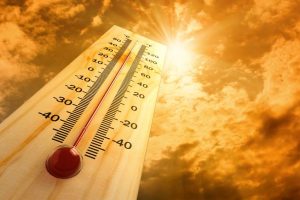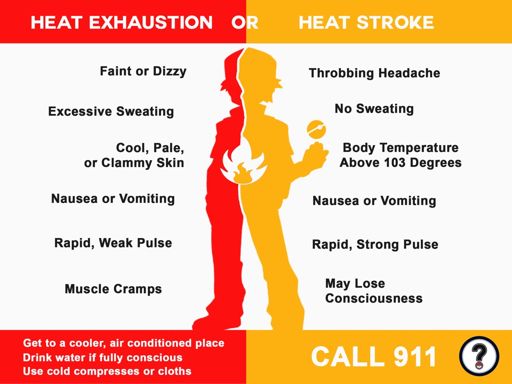Practice healthy swimming to prevent spread of Crypto, other waterborne illnesses
DENVER— As summer heats up and more people head to the pool, the Colorado Department of Public Health and Environment reminds people to protect themselves from recreational waterborne illnesses such as cryptosporidiosis (Crypto) and giardiasis (Giardia).
Crypto and Giardia are parasites that cause intestinal illness. Crypto easily spreads through water and is hard to kill, even in properly chlorinated pools. The parasites live in the guts of infected people and animals and are passed through feces (poop).
Swallowing contaminated swimming water is one of the most common ways Crypto spreads. We want people to know what they can do to minimize their risk of getting sick and spreading disease. — Nicole Comstock, who manages the enteric disease program for the department
 Crypto and Giardia are spread not only by swallowing water (from swimming) but also from eating food contaminated by feces from infected people or animals, even in tiny amounts that can’t be seen. The infections also can spread from person to person and from touching surfaces or objects contaminated with feces from an infected person and then touching your mouth without washing your hands first.
Crypto and Giardia are spread not only by swallowing water (from swimming) but also from eating food contaminated by feces from infected people or animals, even in tiny amounts that can’t be seen. The infections also can spread from person to person and from touching surfaces or objects contaminated with feces from an infected person and then touching your mouth without washing your hands first.
The illnesses can cause diarrhea, stomach cramps, nausea, vomiting and fever. Symptoms typically begin two days to four weeks (one week on average) after swallowing the parasite, and can come and go for a month or longer. People are contagious from the time symptoms start until at least two weeks after the symptoms go away. The only way to diagnose these illnesses is to be tested by a health care provider. The diseases can be serious for people with weakened immune systems.
The state and Tri-County health departments continue to investigate whether illness is linked to a June 11-13 incident at Water World, during which untreated pond water might have contaminated pools and drinking fountains or might have been used to make food, ice and drinks at the park. Two people who visited Water World during that time have been diagnosed with Crypto and one person has been diagnosed with Giardia. Public health agencies are investigating whether these illnesses are associated with their visits to Water World. Water World resolved the water contamination issue, and there does not appear to be ongoing contamination. If you visited Water World Colorado on June 11, 12 or 13 and experienced symptoms such as fever, vomiting, diarrhea or stomach issues after your visit, call the Colorado Department of Public Health and Environment at 303-692-2700.
Prevent Crypto, Giardia and other recreational water illnesses
- Stay out of the water if you have diarrhea.
- If you know or suspect you might have Crypto or Giardia, do not swim while you are sick with diarrhea and stay out of the pool for two weeks after the diarrhea is gone.
- Shower before you get in the water.
- Change diapers away from poolside.
- Take kids on bathroom breaks every hour.
- Don’t swallow water you swim in.
- Wash your hands frequently, especially after using the bathroom and changing diapers and before preparing and eating food.
- Stay home from work, school, day care and summer camp if you are sick.
- Avoid sexual activity if you are sick with diarrhea.
- If you are sick and your symptoms are not going away, check with your health care provider.
 Record Breaking Heat — prevent illness and other serious conditions
Record Breaking Heat — prevent illness and other serious conditions
With temperatures in the triple digits this week, the Colorado Department of Public Health and Environment is reminding residents and visitors to take precautions to avoid heat-related illnesses. Heat-related illnesses include heat exhaustion or heat stroke, which can cause damage to the brain and other vital organs. These conditions happen because the body’s temperature rises faster than the body can cool itself.
During extreme heat, stay in an air-conditioned place as much as possible. Some counties are partnering with cities and towns to make sure additional locations, such as recreation and senior centers, are available to anyone who needs to come in for a few hours to cool down. Call your local public health agency to see if there are any heat-relief shelters in your area.
Older adults, the very young, people with mental illness and chronic diseases, and people living without air conditioning are at highest risk for heat-related illness and should be watched closely. “Friends, families and neighbors should check in on the elderly and those with pre-existing health conditions routinely,” said Dane Matthew, director of the department’s Office of Emergency Preparedness and Response. “Heat can also affect young and healthy people if they participate in strenuous physical activities during hot weather.”
To avoid illness from heat, public health officials recommend these precautions:
- Stay in an air-conditioned area. If your home does not have air conditioning, go to a shopping mall, library or other place that does. Even a few hours in an air conditioned environment can keep the body cool.
- Drink water often; don’t wait until you’re thirsty. Avoid sugary drinks and alcohol, as they cause a loss of body fluid.
- Provide pets with plenty of fresh water.
- Limit outdoor activity to when it’s coolest.
- Wear sunscreen of SPF 15 or higher.
- Wear lightweight, light-colored, loose-fitting clothes.
- Avoid preparing or eating hot meals; they add to body heat.
- Visit adults who are at greater risk at least twice daily, and watch them closely for signs of heat exhaustion or heat stroke.
- Be safe on the job. If your job involves physical work outdoors:
- Drink water every 15 minutes, even if you’re not thirsty.
- Wear a hat and light-colored clothing.
- Rest in the shade.
The Occupational Safety and Health Administration (OSHA) has heat-safety resources for employers, including mobile apps that can alert workers when extreme heat conditions exist.
Move people experiencing signs of heat exhaustion to a cool place as soon as possible. Applying cool, wet cloths to their head and body, or placing them in a cool bath also can help cool them down. People should get medical help immediately if they vomit, their symptoms last longer than one hour, or their symptoms worsen.

Signs of heat exhaustion include:
- Heavy sweating.
- Cold, pale and clammy skin.
- Fast, weak pulse.
- Nausea or vomiting.
- Muscle cramps.
- Tiredness or weakness.
- Dizziness.
- Headache.
- Fainting.
SPREAD THE NEWS
COMMENT, Like, Follow & SHARE @I70Scout
CURRENT EDITION
WEATHER & TRAFFIC PUZZLES RECENT NEWS ADVERTISE WITH US